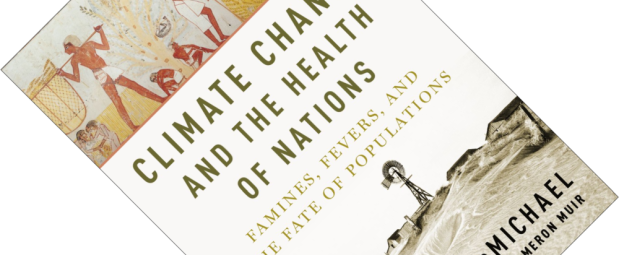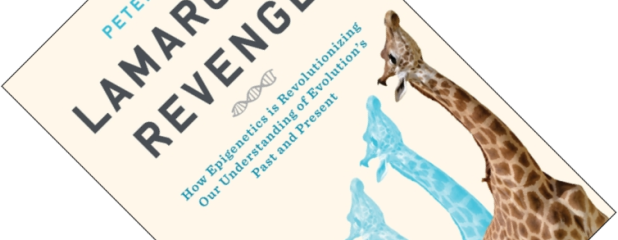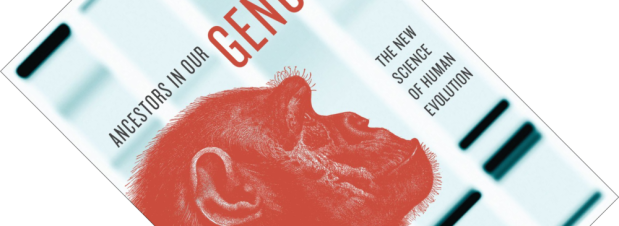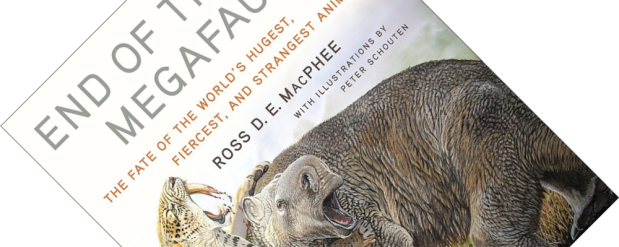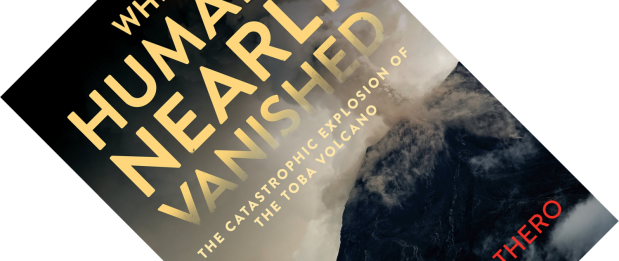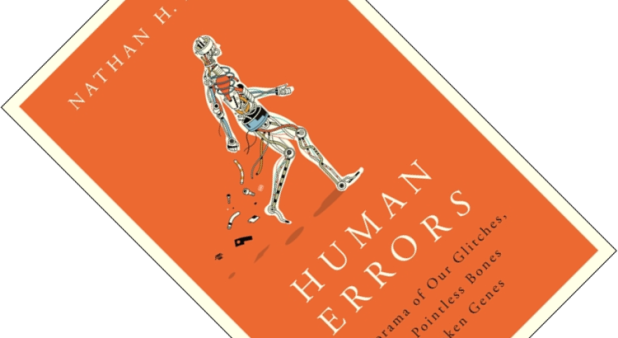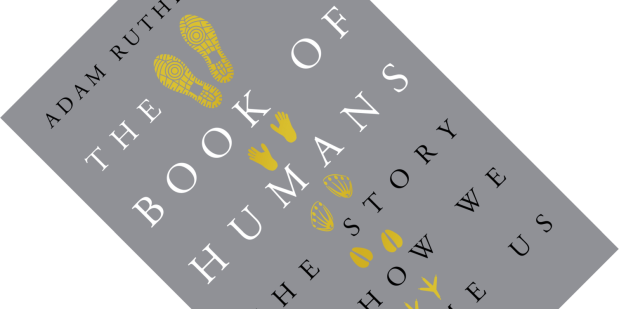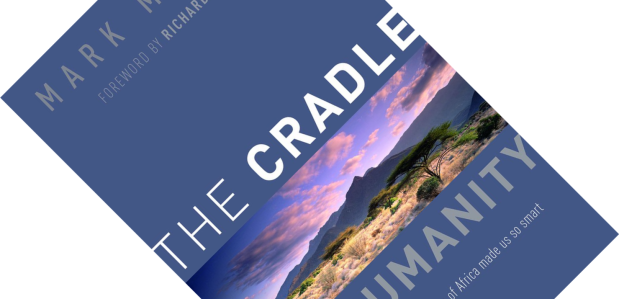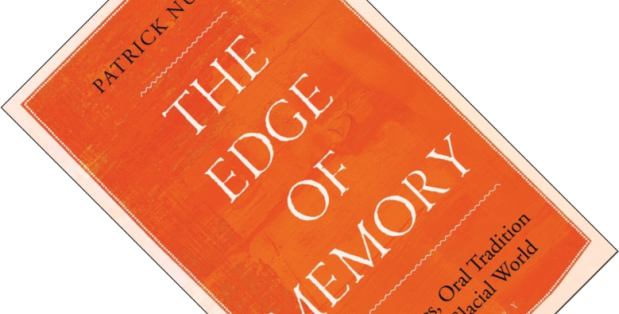When a history book leaves you reeling, you know that it has done its job properly. Climate Change and the Health of Nations is a grand synthesis of environmental history, charting the fate of civilizations and the links between climatic changes and the health of people. It is also a book that almost wasn’t.
human evolution
Book review – Lamarck’s Revenge: How Epigenetics Is Revolutionizing Our Understanding of Evolution’s Past and Present
As one of several intellectuals who wrote about evolution before Darwin, time has not been kind to the French naturalist Jean-Baptiste Lamarck (1744-1829). Reviled during his lifetime by the influential Cuvier, after his death he became best remembered, and ultimately ridiculed, for the idea that characters acquired during an organism’s lifetime are passed on to its offspring. With the rise of the modern field of epigenetics, some of his ideas are making a comeback, albeit modified and adapted for the 21st Century. Palaeontologist and astrobiologist Peter Ward would even like to go so far as to restore some honour to his name and consider epigenetics a neo-Lamarckian process.
Book review – Ancestors in Our Genome: The New Science of Human Evolution
After I read and reviewed Who We Are and How We Got Here: Ancient DNA and the New Science of the Human Past, I thought I knew about the changes to the story of human evolution based on studies of DNA. And given that Ancestors in Our Genome was published a few years before that book, I was curious what it could add to what I had been reading so far. As it turns out, a lot. As with my previous review, I should preface this one with the same warning that things are about to get complicated…
Book review – End of the Megafauna: The Fate of the World’s Hugest, Fiercest, and Strangest Animals
Mammoths and sabertooth cats are but two icons of an assemblage of large animals, or megafauna, that disappeared between roughly 50,000 to 12,000 years ago. As with all mass extinctions, several explanations have been put forward, but one man and his idea take centre stage in these discussions: Paul S. Martin’s overkill hypothesis. In End of the Megafauna, palaeomammalogist Ross D.E. MacPhee carefully scrutinises this idea, weighs up the arguments for and against, and explains its enduring allure. To quote Huxley, is this another example of “the slaying of a beautiful hypothesis by an ugly fact”?
Book review – When Humans Nearly Vanished: The Catastrophic Explosion of the Toba Volcano
When it comes to big volcanic eruptions, names such as Vesuvius, Mount Saint Helens, and Krakatau will ring a bell. But all of these are dwarfed by a far larger eruption that few outside of the science community will have heard of. Noted geologist, palaeontologist and author Donald R. Prothero here tells the story of the eruption of Mount Toba in what is nowadays Sumatra, Indonesia, some 74,000 years ago. An eruption so gargantuan that it almost wiped out the human race.
Book review – Human Errors: A Panorama of Our Glitches, from Pointless Bones to Broken Genes
If there is one thing that infuriates me about the way the human body works, it is the fact that our throat is a passage for both food and air. I am sure that anyone who has gone down in a fit of coughing can attest to this. As Nathan Lents shows in his amusing book Human Errors, that is just the tip of the faulty iceberg.
Book review – The Book of Humans: The Story of How We Became Us
Historically, humans have long considered themselves special compared to the natural world around them. It shows, for example, in old depictions where humans are at or near the top of a chain of lifeforms, with only angels and gods above us. Darwin caused a tremendous ruckus by saying we were descended from primates, and evolutionary biology has since had a long history of diminishing our anthropocentric worldview. With The Book of Humans, self-professed science geek Adam Rutherford has written an entertaining exploration of human evolution, showing that, amidst the teeming multitudes of lifeforms surrounding us, we are really not that special. And yet we are.
Book review – The Cradle of Humanity: How the Changing Landscape of Africa Made Us So Smart
The story of human evolution is constantly being refined with new findings and there is a glut of accessible books that cover this topic from various angles. Yet, with The Cradle of Humanity, geography professor Mark Maslin manages to provide an interesting and novel take on the subject, showing the reader how a happy combination of larger factors conspired to influence and steer our evolutionary trajectory. It could have ended up so differently…
Book review – The Edge of Memory: Ancient Stories, Oral Tradition and the Post-Glacial World
When I read the brief for The Edge of Memory, my first thought was: “Really, Bloomsbury is publishing a book on flood geology?” This creationist take on geology tries to interpret geological features in accordance with the Biblical account of a worldwide flood described in Genesis. If you haven’t read your Bible verses today, don’t worry, if I say “Noah” and “ark”, you probably know which one I mean. My guess was close, but not quite on the ball. Patrick Nunn, a professor of Oceanic Geoscience, here argues that ancient stories and myths hold within them descriptions of geological catastrophes and climatic changes. Welcome to the obscure academic discipline of geomythology.
Book review – Dinner with Darwin: Food, Drink, and Evolution
Who could refuse such an invitation to dinner? In fourteen short chapters, Dinner with Darwin provides a smörgåsbord of topics on the role of food in human evolution and vice versa, many of which have been covered here in recent reviews. This is Jonathan Silvertown’s fourth book with the University of Chicago Press, and based on this, I would love to read his other books as well. Care to join me at the table?

